At 100+ pages, writing a PhD thesis paralyzes the bravest student. Breaking writer’s block for PhD students is possible and easy. Keep reading to know how.
One of the most important and terrifying experiences in graduate school was writing my thesis proposal in my second year. The average length of our program was 6 years, so the proposal I was putting together would be the blueprint for my research (and most of my waking hours) for the next four years.
My thesis focused on studying liver toxicity in cell cultures and I had already collected promising preliminary data for a doctoral thesis project. Yet, as I sat in front of the computer ready to plunge into the writing of my proposal, my hands paralyzed.
My data opened up several new doors for research, perhaps too many, and I felt hesitant about which direction to commit to. There was no guarantee that any one of those directions would lead me to a doctoral degree in 4 years. There were too many unknowns (that is why it is called research) and I knew that in order to graduate I would need to collect publishable data.
The indecisiveness about which path to take weighed down on me for several weeks. The deadline was approaching quickly and I had not made any significant progress on the proposal. It felt like someone had pushed the off button on my brain as soon as I sat down to work on my proposal.
Every once in a while I managed to put a paragraph or table together, but the closer the deadline was, the more I panicked and the tougher it was to continue writing.
In my desperation, I began reading articles about how to write a thesis proposal and I came across a term that I had only vaguely heard of before: writers block for PhD students.
I was an engineering major, so I did not have to write long papers in college. The term papers I wrote for humanities classes were usually straightforward research projects, and certainly did not require a commitment on my end for the next four years of my life.
It is amazing how much relief can be found in having a name for an” ailment” such as a writer’s block. As weeks had gone by without any significant progress on my proposal, I began to think that there was something profoundly wrong with me. Maybe I was not smart enough for a PhD, or not cut out for research. We all have those worries in our minds, don’t we?
Once I realized that I was going through a writer’s block for PhD students (something that all writers experience) I started researching ways of breaking it. I discovered some strategies to open the flood gates of my creative mind and let the words pour onto the page.
Two weeks later I submitted my thesis proposal to my committee and I successfully defended it a week later. The rest is history.
These writing strategies allowed me to finish my doctoral dissertation and to write 3 papers in graduate school. Let me share these strategies with you to overcome writer’s block for PhD students (or prevent it in the first place), and make consistent progress daily. If you implement these writing tips, you will probably notice tangible progress in your writing in seven days or even less.
Photo by cblue98
1. Join a support group (or find a writing buddy)
Do you know what PhDs would change if they had to start graduate school again? Among many other things, most of the PhDs wished they had joined a thesis support group to help them stay motivated.
Some universities or departments have support groups, but if yours does not, find a writing buddy who will keep you accountable. It turns out that people are much more likely to follow through on their commitments if they write down their goals or say them out loud to someone else.
Ideally, your writing buddy will be another student, so you can read each other’s drafts periodically. It does not have to be a student in your field who understands the nitty-gritties of your research. Just knowing that you will need to hand a draft to another person by a certain date will motivate you to keep writing.
Note. Your significant other can support you in graduate school. but he/she might not be the best choice for a writing buddy. A writing buddy needs to be completely impartial. Also, as graduate school puts a strain on most relationships, it best to enjoy your time together free of any worries about your thesis.
2. Begin writing about anything that comes to mind
This strategy is particularly useful if you have written very little so far. Think of it as a warm-up exercise to get your creative juices flowing.
As an example, begin writing about your preliminary data, data published by others, or the goals of your research. Do not worry about grammar or even accuracy. Just get words on the page for about 15-20 minutes.
Ideas are born with writing, and the more you write the more ideas you will have. Even after I got back into the rhythm of writing, I always began my day by just jotting down ideas for the first 15-20 minutes.
Remember, ideas are useless inside your mind – they need to be on paper and explained well so others (particularly your thesis committee) can understand them. Most of this writing will not make it into your final draft, but it will help you to create new ideas.
3. Write about the big picture of your research
What is the question you are asking in your PhD? (It is amazing how many 5 th year students do not know what question their thesis is trying to answer.) Why is this research important and how will it contribute to your field and society? How will it support your career development?
The purpose of this exercise is to get you excited about your research again, so you can stay motivated and keep writing. Let your writing be loose at this stage, do not worry about grammar or style, just focus on the importance of your research, and why it is essential for you to complete this project.
4. Identify the gaps or where you are stuck, and get help
Writer’s blocks for Phd students are frequently due to a psychological block such as fear. Perhaps the project you are trying to tackle is too big, or there are too many gaps to pull a cohesive story together.
The only way to get unstuck is to identify where the gaps are, or which part of the project is too big or unrealistic. If you schedule a meeting with your PI and tell him/her that you are stuck, he/she will not be able to help you unless you have more specific questions. As you start writing you will see where you are lacking details or information.
Some student panic when they find a gap in their research. Finding gaps is a good thing. Most research projects (even published papers) have gaps in their arguments.
The only way to fill the gaps is to find them and if you cannot resolve them on your own get help from your PI. The sooner you get help (and the more specific your questions are) the sooner you can pull your proposal, paper, or thesis together.
5. Review similar papers or doctoral dissertations
I remember being terrified by the thought of writing a doctoral dissertation that was over a hundred pages long. As I was nearing the writing stage I had to look through the dissertations of previous students to compare my data and conclusions with theirs.
When I read their dissertations I realized that I already had a lot of the elements in place for my own thesis, such as the introduction, the methods and significant amount of data.
Suddenly I felt more confident about being able to finish my thesis by the deadline. This realization was incredibly powerful. Due to scheduling issues with my thesis committee, I only had 20 days to write my thesis, and it was a relief to know that I did not need to start a 150-200 page document from scratch.
Reading similar PhD thesis is a great tip not only for the writing phase, but also for PhD students starting in their projects .
6. Write daily
High quality writing requires daily discipline. If possible, write at the same time and place daily. If your schedule varies due to other commitments, set up a weekly schedule where you block off time for writing daily. If you are very busy (with classes, part-time job, family), you might only be able to commit to 15 minutes on some days.
Daily writing (even if for short periods) will keep you from catching the writer’s block bug again. Of course, you will need to schedule of large chunks of time eventually to pull a high quality manuscript together, but in the meantime make sure to get your 15 minutes of writing every day.
7. Write first
About 99% of people say that the first thing they do when they turn on their computers is …check their email!
Even prior to turning on their computers they might check their text messages and send dozens of replies before they get to their office.
Writing requires focus and creativity and many people are at their peak productivity level in the morning. Checking email and text messages can overwhelm your mind with information and interfere with your writing process, especially if you receive an unsettling message.
I recommend writing for 45 minutes prior to checking email, but if that seems too long start with 10 minutes and gradually work up to 45 minutes.
During the crunch time of writing my thesis (which was 20 days), I checked my email once a day in the afternoon, and I had already completed at least 5 hours of writing by then. I knew that if there was a family emergency I would be contacted by phone and I could not think of any email that would be higher priority than getting my thesis done by the deadline.
8. Clear your conscience and start fresh every day
Did you ever have a New Year’s Resolution that you did not keep? If you have, you are in good company.
It is estimated that only 2% of people follow through on their New Year’s Resolutions. One reason that people fail is that they give up after the first mistake, such as eating a donut when they committed to losing 80 lbs.
Setting up a writing schedule can help you to manage your time and progress, but life happens, and you will probably not be able to follow through with it 100% of the time. Some students are very hard on themselves when they “mess up” and these feelings of guilt lead to even less productivity.
The best way to make consistent progress is to start fresh every day by committing to follow through on your plan to your best ability, regardless of whether you were able to follow through on previous days.
If you realize why you were not able to follow through before (eg. unrealistic expectations, conflict with other commitments), then you can use these lessons to develop a more realistic plan.
9. Keep notepad next to you to jot down ideas and errands
In spite of our best intentions to focus on writing, our minds wander. You might realize that you need to run an errand, look up something unrelated to your thesis on the internet, or send an email to someone.
If you stop your writing to take care of these items, you will lose your train of thought and it will be more difficult to get back into writing.
At the end of the day you might have completed 10 errands, and made little or no progress on your writing. However, not taking care of errands can also lead to problems such as unpaid bills and missed medical appointments. There are students who are so focused on their research that they are chronically late in their credit card payments or do not have a physical checkup for years.
An approach that worked well for me is to write down any intruding ideas on a notepad which I kept next to my computer. My notebook allowed me to get ideas out of my head and recorded in a safe place so I could address them later. Most ideas were not urgent and could wait to be taken care of until I had finished a certain number of pages or hours of writing.
10. Build your writing from the inside out
One of the reasons that PhD students experience writer’s block is that they feel overwhelmed by all of the data and details that must go into their manuscript.
A good way to lessen to load is to start with an outline of the different sections you will include. What is the core of your paper? What questions are you asking? What is your hypothesis? If you have data, what are your conclusions?
Begin by writing just a few sentences for each section to capture the essence of what you are trying to show. As you proofread your writing in the upcoming days you can embellish each section by adding more data, references, or any other information that will support your arguments.
11. Alternate 45 minutes of writing with 15 minutes of rest
Most writing projects will require large blocks of time, but few people can sustain their focus for several hours in a row. Taking regular breaks will allow your mind to rest and get a new perspective on your writing each time you sit down to type again.
Your creative mind works best when you are not at your desk staring at your screen. Thus, taking a 15 minute break to walk or get a drink might give you new insights on how to resolve a problem you had been struggling with previously.
Students who work from home sometimes use the 15 minute breaks to do minor chores such as changing/folding laundry or washing the dishes.Imagine killing so many birds with one stone – by the end of the day you will have a well-written manuscript and clean clothes and dishes!
12. Let it go when it is good enough
Perfectionism can kill your creative spirit. While GPAs and SAT scores can be perfect, there is no such thing as a perfect thesis. You can work on your thesis for 100 years, and professors will still question some of your arguments during your thesis defense.
If you try to make your thesis too perfect and re-edit the same paragraphs over and over again, you will lose precious time and possibly lose motivation to continue writing.
I usually tell my students to let their thesis (or paper) go when they feel it is about 95-98% right. In my experience of scientific writing, I find some things to improve each time I read my draft. However, the revisions become more minor after every phase. If you are confident in the accuracy of your data and content, spend little time on word choice, sentence structure, or colors in your illustrations.
Every student I know had to make revisions to their thesis based on feedback from their committee. No matter how perfect you try to make your manuscript or thesis, be prepared to receive (sometimes highly critical) feedback that could take weeks or even months to implement.
Where to start?
If you are experiencing writer’s block as a PhD student, don’t try to implement all twelve strategies at once. However, it is realistic to get back into the rhythm of writing within one week. If I had to choose my top three favorites, they would be #s 2, 3, and 6:
- Begin writing about anything that comes to mind
- Write about the big picture of your research
- Write daily
If you need to write a manuscript or thesis over the course of a few weeks or months, you need to make writing a daily habit. A strategy that works well for students who dislike writing is to set a timer to a very short amount of time such as 25 or even just 10 minutes and to do nothing but write during that time. It is amazing how a short chunk of time such as 10 minutes can lead to several paragraphs when you are focused.
To help you get into the rhythm of writing schedule 2 or 3 writing bursts of 10 or 25 minutes each day. Gradually increase the length of time until you are able to write for about 45 minutes, and then you can begin alternating that time with 15 minutes of rest.
Are you ready for this? I was an engineering major and I really disliked writing as a student. To my utter astonishment, once I developed my own writing habits I started to enjoy writing! I began writing articles about my experience as a graduate student, which eventually evolved into my book “The Smart Way to Your PhD: 200 Secrets to 100 Graduates” and my weekly blogs on my site, FinishYourThesis.com .
If you are reading this article, you have probably experienced a writer’s block at some point during your career. Care to share your experience in the comments section below?
What strategy did you use to start writing again?
What recommendations do you have for students who are experiencing a writer’s block?
I look forward to your replies!
Dora Farkas, Ph.D received her PhD from MIT and worked in the pharmaceutical industry for several years. Dora is a thesis and career coach for graduate students and postdoctoral fellows. She is the Founder of FinishYourThesis.com. a site devoted to help graduate students complete their degrees. Dora is launching her online “Finish Your Thesis Program” soon. Click here to get a copy of Dora’s FREE report “Secrets to Success in Graduate School”, which includes her favorite productivity tips based on coaching over 200 students in the last 5 years.
Comments
[&…] 12 Ways To Overcome Writer’s Block For PhD Students. Better than Before: A Psychological Field Guide to Harnessing the Transformative Power of Habit. By Maria Popova How to lay a steadfast foundation for “the invisible architecture of daily life.” “We are spinning our own fates, good or evil… Every smallest stroke of virtue or of vice leaves its never so little scar,” William James wrote in his seminal 1887 treatise on habit, the bundle of behavior he called the “enormous fly-wheel of society.” [&…]
[&…] In fact, you probably have wrote or talked in great detail about many subjects within your niche before. Writers block is just something that even the best of us can face at any moments of time in fact according to NextScientist.com even PHD students face writers block from time to time. [&…]
The masters and doctoral theses are the most challenging papers of an academic career. Often we find that students struggle to finish a dissertation and realize that help is needed. Or candidates may be too busy with the demands of school, home, and work to add completing a hefty paper to the mix. Either way, thesis writing assistance is available.
Thesis Assistance For A Masters Degree
A master’s thesis is an extensive research paper, up to 100 pages or more in length. This kind of paper requires organization and dedication to complete. You’ll be spending a lot of time and effort on this project, so make sure it is one that interests you. Falling interest combined with disorganization and a tight schedule can be detrimental to finishing the paper. We’re available to guide you through the process. If you need thesis assistance, writing with a professional is a good way to ensure success.
The PhD Dissertation
The PhD dissertation is an even more complicated paper. Not only is it much longer, but it is expected to contribute new knowledge to the subject. It must detail the available literature, like in the masters thesis, and also analyze and explain your research findings. Our experts are excellent at compiling and analyzing data, as well as searching out all of the relevant data. VivaThesis.com has a team of experts to help get the paper written.
Overcome Mental Block With Dissertation Writing Assistance
After years focused on the topic, completing the paper is just another task to perform. But we find that many students experience serious mental blocks when deadlines loom. They have trouble organizing the research and getting words on paper. When this happens, our dissertation assistance service can make a big difference.
Hiring Academic Paper Services
Hiring a professional overcomes all of the problems inherent in finishing such a paper. Our expert writers know exactly how to organize dissertations. We can assist you with one troublesome section or we can complete the entire paper. Here are a few of the things that make our dissertation writing service so valuable to you:
- Dissertation assistance at every stage of the planning and completion
- Excellent communication with your chosen expert
- Editing services are included
- Free revisions
- Perfect grammar and punctuation
Our thesis writing assistance can give you the boost you need to finish your degree.


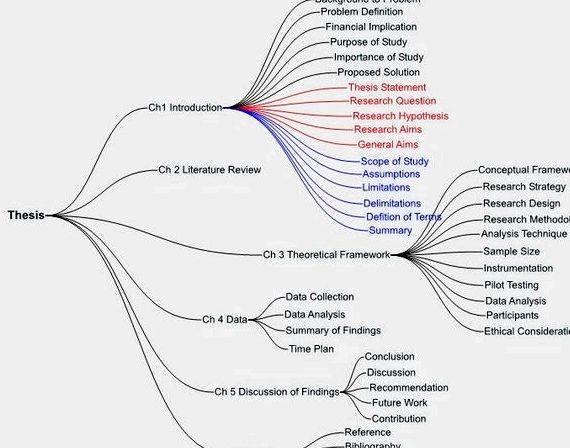
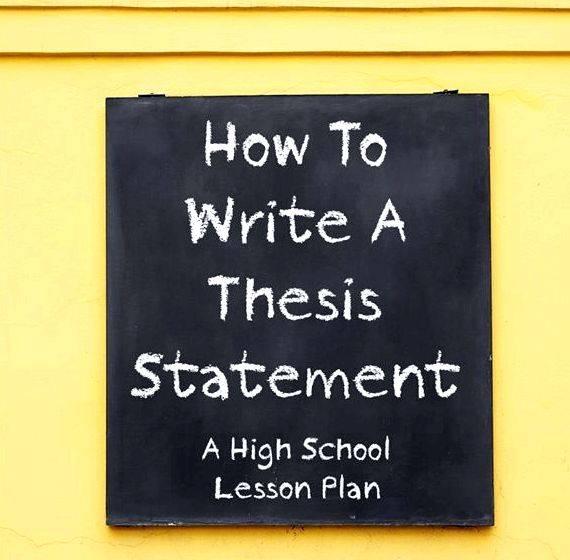


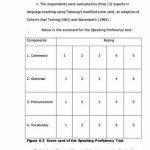 Scoring procedure in thesis writing
Scoring procedure in thesis writing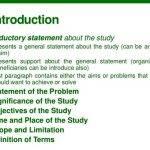 Components of chapter 1 in thesis writing
Components of chapter 1 in thesis writing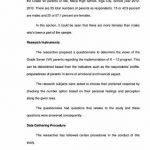 Respondents of the study sample thesis proposal
Respondents of the study sample thesis proposal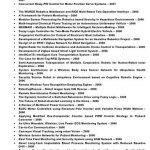 Fractional order pid controller thesis proposal
Fractional order pid controller thesis proposal Lens induced glaucoma thesis writing
Lens induced glaucoma thesis writing






